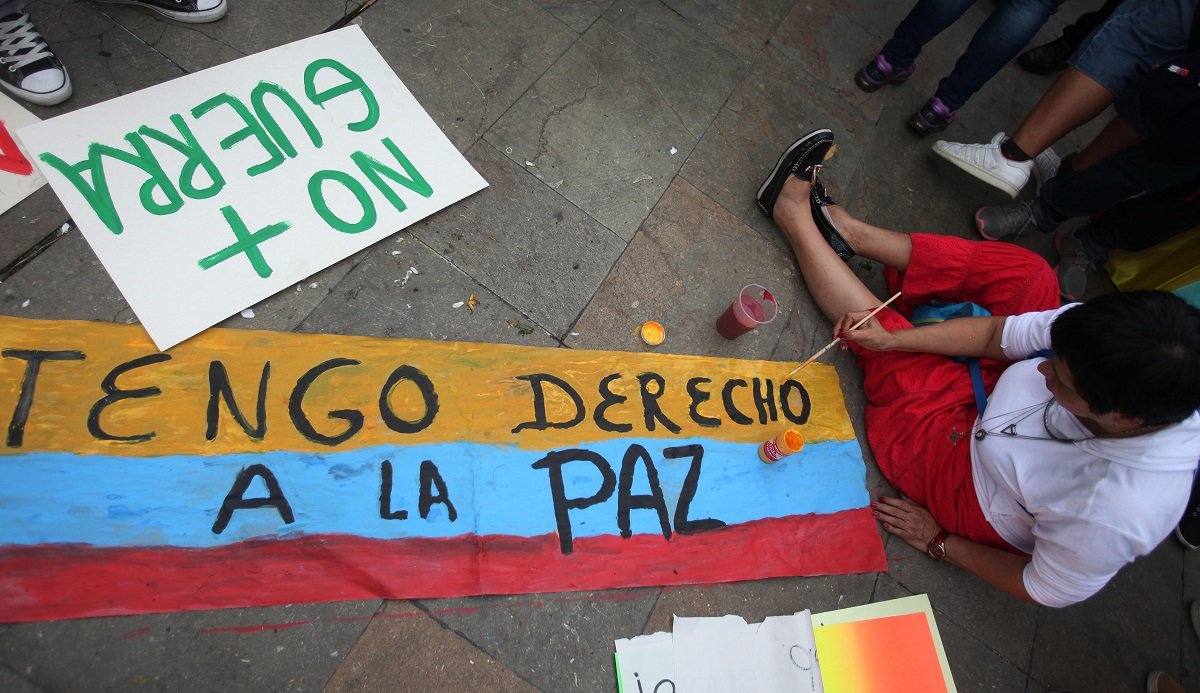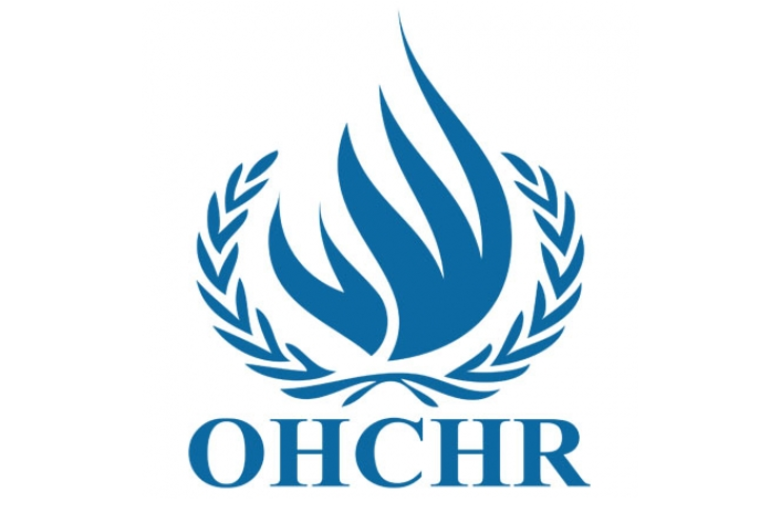Editing office - Geneva
Statement by UN High Commissioner for Human Rights Michelle Bachelet
New York, 11 March 2019
Distinguished President,
Excellencies,
My fellow panellists,
Mr. Serpa Soares and Judge Meron,
Colleagues and friends,
 I am grateful to Peru and France for organizing today’s discussion. The inter-relationship between justice, accountability and human rights, and how they contribute to the maintenance of international peace and security, are challenging and essential topics for all of us. I approach our discussion today as High Commissioner for Human Rights, as well as from my own experience as a victim of State abuse and then leader of a country grappling with the complexity of these very issues. The Security Council has played a key role in building respect for international law, in promoting multilateralism and a rules-based international order. This is the bedrock for peaceful and respectful relations among States. The Council’s resolutions have been right to “stress[] the importance of accountability in preventing future conflicts, avoiding the recurrence of serious violations of international law and enabling sustainable peace, justice, truth and reconciliation”.1
I am grateful to Peru and France for organizing today’s discussion. The inter-relationship between justice, accountability and human rights, and how they contribute to the maintenance of international peace and security, are challenging and essential topics for all of us. I approach our discussion today as High Commissioner for Human Rights, as well as from my own experience as a victim of State abuse and then leader of a country grappling with the complexity of these very issues. The Security Council has played a key role in building respect for international law, in promoting multilateralism and a rules-based international order. This is the bedrock for peaceful and respectful relations among States. The Council’s resolutions have been right to “stress[] the importance of accountability in preventing future conflicts, avoiding the recurrence of serious violations of international law and enabling sustainable peace, justice, truth and reconciliation”.1
The Security Council has contributed to the fight against impunity for serious violations and crimes, in specific, practical and diverse ways. In response to varying situations, the Council has created investigative commissions and ad hoc international criminal tribunals. It has referred situations to the International Criminal Court, and it has supported the creation of domestic and hybrid justice mechanisms. The Council has mandated peace operations to address violations that threaten peace and security, and to support national efforts to pursue accountability, justice and reconciliation. All these, together, constitute powerful acknowledgment of the essential role of justice and accountability in addressing threats to international peace and security.

The Security Council has contributed to the fight against impunity for serious violations and crimes, in specific, practical and diverse ways. In response to varying situations, the Council has created investigative commissions and ad hoc international criminal tribunals. It has referred situations to the International Criminal Court, and it has supported the creation of domestic and hybrid justice mechanisms. The Council has mandated peace operations to address violations that threaten peace and security, and to support national efforts to pursue accountability, justice and reconciliation. All these, together, constitute powerful acknowledgment of the essential role of justice and accountability in addressing threats to international peace and security.
President, Excellencies,
It is a fundamental truth that achieving sustainable peace and reconciliation in the aftermath of violent conflict, marked by large-scale human rights violations, requires us to travel the path of dialogue and justice. Numerous investigative mechanisms have emphasised the role of impunity as a driver of violent conflict, fuelling and escalating tensions. They have also argued that measures to uphold justice and accountability are essential to break cycles of violence and establish durable peace. As many societies have learned – the hard way – in a culture of impunity, where perpetrators are emboldened, and victims silenced, grievances will breed until they erupt in renewed violence. Where national authorities fail to meet the needs of victims and survivors, and where domestic justice for the most serious crimes cannot be achieved, the international community must assume its responsibility and craft steps to accompany societies towards a future of justice, sustainable peace and reconciliation. In this vast area of responsibility, all parts of the UN system are called upon to contribute, within their mandates and responsibilities. Alongside the actions of the Security Council, accountability mechanisms created by the General Assembly and the Human Rights Council demonstrate the international community’s determination to ensure that, in the face of alleged atrocity crimes, international norms are upheld, and demands for justice by victims and affected communities are heeded. I recognise that there are no quick fixes in such a complex area. One size cannot and does not fit all. No solutions are perfect. We know that criminal justice plays an indispensable role. But it is also clear that dealing with the legacy of massive and systematic violations requires broader measures to engage individual and collective healing, as well as to entrench institutional reform and rebuild confidence in the State and the rule of law. Realizing these objectives requires long-term commitment and investment, spanning decades. And changes in political environments, and other factors, may mean the work is not always linear, swift or invariably effective. Some goals can be achieved, while others languish – this is the reality that requires us to consistently learn, review and reconsider what has been achieved, and what is the best collective way forward, leaving no one behind.
President, Excellencies,
It might be tempting to analyse the issues before us in conceptual or academic terms. This is important, but the fundamental questions are very human. The first essential demand is for the truth. What have you done with my son, my daughter, my mother, my husband? Where are they? In my own region, transitions to democracy and independent judiciaries have progressively opened up genuine reckoning with the past, encompassing true accountability for leaders and commanders of security forces of decades ago. Yet, even in the face of clear evidence, there are still many people, including in my own country, who deny the reality of the massive human rights violations perpetrated under the dictatorships despite everything that has since been laid to light. Argentina has engaged hundreds of prosecutions in the context of violations in the 1970s and 1980s, including the disappearance of some 30,000 people. Truth-seeking processes – and reparations for victims and their families – have also played an essential role in beginning to reshape a respectful and cohesive society. Chile has also embarked on a series of large-scale and consequential truth-telling procedures to identify victims, and enable reparations. After several decades, both countries continue to work in this direction. After a half-century of war, Colombia’s peace agreement provides for the establishment of a Comprehensive Integrated System of Truth, Justice, Reparation and Guarantees of Non-Recurrence. This novel approach combines a finely calibrated combination of judicial and extrajudicial mechanisms, and is crucially important to embedding the peace reached after decades of violence and suffering. Ground-breaking trials took place in Guatemala, for officials at the highest levels of the military. In February 2016, a national court ruled that charges of sexual slavery against indigenous Q’echi’ women during the armed conflict qualified as crimes against humanity. In May last year, another court decision found four high-ranking members of the military guilty of crimes against humanity, enforced disappearance and rape, exposing the chain of command responsible for these crimes. These examples demonstrate that a combination of mechanisms and approaches, tailored to the specific context, is essential to strengthening democratic institutions, to seeking and establishing accepted truth and enabling sustainable peace. The essential pre-requisite underlying all these choices is the necessary political will to commit to, and stay, the course. Processes of justice and of truth, with willingness to patiently and diligently identify and confront root causes and provide for reparation, are equally important. These all are key building blocks towards a long-term goal of achieving sustainable peace, notwithstanding political pushback in a number of countries and current legislative efforts to cement amnesty and impunity. We are all called upon to support and reaffirm the successes that have been achieved, to lock in for the future the progress reached after much struggle.
President, Excellencies,
In all areas of the UN’s work, focussed attention on the particular situation of women and girls is necessary to properly understand the problem, and to craft the most appropriate responses. That truth is, of course, critically relevant in the context of justice and accountability we are discussing today. Over decades of experience, we have become aware of the degree to which women and girls are deliberately targeted for attack, and specifically sexual attack, in today's conflicts. Addressing these crimes, and the rights of women and girl victims and survivors, is not a minor adjunct to the work of reconciliation. It is at the heart of any process of justice and accountability seeking to be genuinely effective. It is at the heart of my work and it needs to be at the heart of your work, to achieve sustainable peace. Indeed, the Security Council’s placement of the crime of conflicted-related sexual violence on its agenda, as a threat to international peace and security, has been a vital step forward. I would encourage Members to consider further how future processes in this area specifically acknowledge the situation of women and girls, and how their rights can be best protected and vindicated in response to the commission of the worst crimes.
President, Excellencies,
I am proud that my Office and the human rights components of peacekeeping operations have built considerable expertise in accompanying States in the complex and crucial transitions from divisive violence and repression, to re-establishing the ordinary links of life in a shared space. Currently, for example, we are active in such situations in the Central African Republic, Colombia, the DRC, the Gambia, Guatemala, Mali, South Sudan, Sri Lanka and Tunisia, to name but some very diverse situations.Comprehensive transitional justice approaches – including national consultations, truth-seeking, reparations programmes, institutional reform and prosecutions – are key to moving incrementally forward towards reconciliation. Initiatives in the areas of history education, memorialization, arts, culture and archiving also crucially contribute to the deep change of attitude that sustainable transformations demand. In each of these areas, civil society has been essential to urging and supporting Governments to take decisions that have long-term benefits, despite potential short-term political costs. Initiatives that have truly borne fruit have acknowledged and addressed both the needs of the victims and the root causes of the conflict. They have helped to rebuild political systems, address broken relationships across society and renew a sense of a common identity.They have benefited from the powerful synergies between justice, and the goals of prevention, reconciliation, sustainable development – and sustainable peace.They have advanced measures to address the specific root causes of the gross inequalities, systemic discrimination, exploitation, impunity and other human rights violations which drive, underlie so many threats to peace and security.Overlooking these underlying human rights issues when formulating responses sets us up for failure.Addressing them builds hope. Human rights measures bind people together. Slowly, but steadily, they shape societies with a sense of shared institutions, founded on the impartial rule of law, and a shared future.I firmly believe these principles to be central to the Council's ability to realise its peace and security mandate. And I look forward to engaging with the Council, and its members, on these issues of common interest in the coming years.
Thank you.